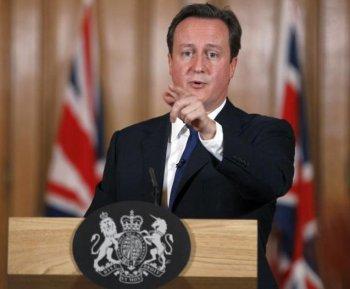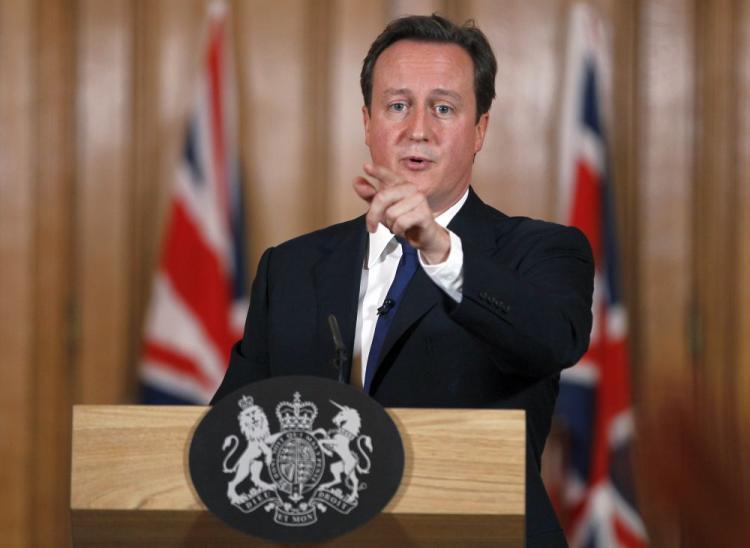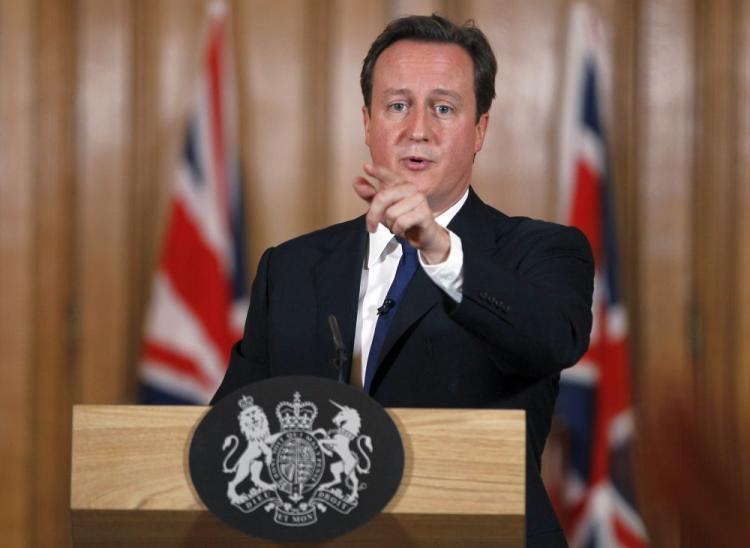Cyberattack and Terrorism High Risks to UK
Terrorism, cyber threats, and natural disasters are some of the most dangerous hazards to U.K. safety.

Britain's Prime Minister David Cameron. Cameron revealed the National Security Strategy (NSS) on Monday. Kirsty Wigglesworth/WPA - Pool /Getty Images
|Updated:





